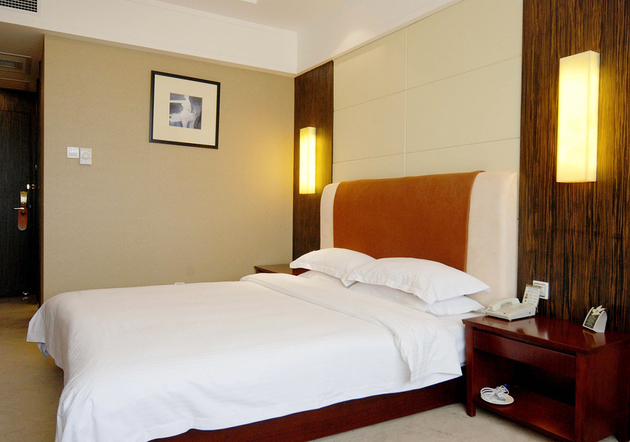Jan. 9 (NBD) -- China's homestay industry experienced a huge boom in the past two years but is expected to witness a landscape reshuffle this year.
Ruan Zhimin, founder of homestay management platform Ebnb, told NBD on Saturday that the homestay market in China is facing a series of problems amid continuous expansion, for example, an increase in complaints and inconsistent service quality.
A number of rural homestay hotels copying those at Moganshan, a mountain top tourist region near Hangzhou of eastern China's Zhejiang province, will be swept away in the reshuffle, Ruan noted.

Photo/VCG
Regulation called for
China's homestay market, which took off in 2011, is maintaining its growth momentum.
Data from the country's tourism departments shows that there exist 53,852 homestay hotels in total as of the end of 2016, a big rise from 42,658 in 2015 and 30,231 in 2014, respectively.
The market is predicted to reach 30 billion yuan (about 4.6 billion U.S. dollars) by 2020.
With homestay at Moganshan growing in popularity in 2015, the new form of hospitality and lodging immediately took the whole country by storm, attracting a massive amount of capital as well as a large number of entrepreneurs.
However, service quality didn't keep up with the rising number of homestay hotels, said Ebnb founder Ruan. There was a sign of reshuffle in the foreign homestay market last year, and the domestic market will soon see a shakeup.
Due to the constellation effect at Moganshan, rural homestay hotels grew wildly last year. Some of them will wind up business this year because of their inconvenient geographic locations, which make them hard to meet customer needs, Ruan explained. Instead, a lot of urban homestay hotels will emerge.
Ruan called for a regulation for the disorderly homestay industry, underscoring that standardizing homestay brands is beneficial to the development of the whole industry.
Wei Changren, president of a Beijing-based culture and tourism data service provider, said to NBD on Monday that a majority of homestay hotels can hardly make profits due to disadvantages in location, customer reach, poor performance in off seasons, high cost in decoration and operation and other factors. As long as they cannot bring a profit, it is time to reshuffle, he commented.
Industry norm being established
Dr. Michael Cheng, an expert in homestay industry and chief executive officer of the Asia Pacific ideas bank, told NBD that homestay facilities can have distinctive and personalized designs, but their services must be standardized.
Whether homestay hotels can make profits and grow stronger depends on whether they can satisfy customer experience to the maximum through standardized operations, he said.
Homestay operation faces three challenges: first, inconstant customer taste, second, numerous competitors, and third, fast-changing industrial structure.
To achieve sustainability, homestay hotels should alter their marketing models and develop unique and differentiated products to improve their reputation.
The top priority for scenic spots or homestay inns should be the rebuilding of integrity and experience value. Whoever has the capability to win over customers can dominate the future tourism and lodging industry, Cheng stated.
In August 2017, the National Tourism Administration released China's first nation-level industry standard specially for the homestay industry. Subsequently, local governments including Shenzhen and Beijing issued detailed rules in succession.
With the implementation of the Basic Requirements and Evaluation for Homestay Inn in October 2017, competition has been getting fierce in the homestay industry.
Industry insiders say that the standardization of the industry will be helpful to improve service quality and occupancy rate of homestay inns.
Email: lansuying@nbd.com.cn


 川公网安备 51019002001991号
川公网安备 51019002001991号





